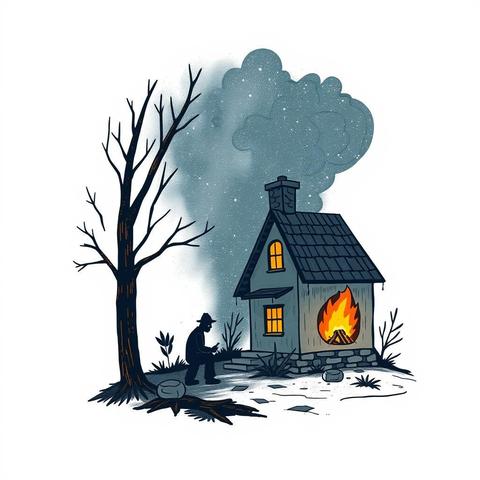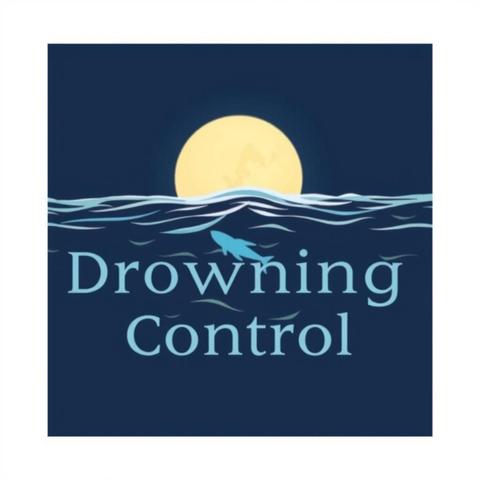Have you ever woken up from a dream featuring death, feeling a profound sense of unease, even though you know it was just a dream? I have. A few years ago, I dreamt of my grandmother, who had passed away peacefully years prior, appearing to me, not in sorrow, but with a gentle smile, urging me forward on a path I hadn’t yet recognized. The experience left me both unsettled and strangely invigorated. This feeling, this mix of unease and unexpected energy, is quite common after a death dream. Many people are left wondering: What does this dream really mean? What spiritual message might it hold? This article will delve into the spiritual interpretations of death dreams, helping you uncover the hidden messages your subconscious might be trying to convey.
The Hidden Meanings Behind Death Dreams: More Than Just Mortality
Death dreams, while often unsettling, rarely signify literal death. Instead, they often represent profound transitions and transformations within your life. They tap into our deepest fears and anxieties around change, loss, and letting go – themes intrinsically linked to spiritual growth. Psychologically, they can symbolize the ending of old patterns of behavior, relationships, or beliefs that no longer serve you. Spiritually, they can be invitations to embrace new beginnings, shedding the old self to make way for the reborn.
The Symbolic Language of Death in Dreams
Death in dreams is rarely a direct prediction of demise. It’s a potent symbol operating on multiple levels:
-
Ending of a Cycle: This is perhaps the most common interpretation. The “death” could refer to the end of a project, a relationship, a job, a phase of life, or even a deeply ingrained habit. It symbolizes closure, offering space for something new to emerge. For example, dreaming of the death of a pet might reflect the ending of a childhood memory or letting go of innocent, carefree times.
-
Transformation and Rebirth: Many cultures view death as a gateway to rebirth, a shedding of the old to make way for the new. Your subconscious might be signaling a significant period of personal growth, a metamorphosis into a stronger, wiser version of yourself. Think of the butterfly emerging from its chrysalis – death of the old form, birth of the beautiful new.
-
Fear of the Unknown: The fear of death often represents a deeper fear of the unknown – whether it’s starting a new career, entering a new relationship, or confronting a challenging situation. The dream could be your subconscious grappling with this fear, prompting you to address it head-on.
-
Letting Go of the Past: Death dreams can represent the need to release past hurts, traumas, or grudges. It’s an invitation to forgive yourself and others, freeing yourself from the weight of the past to embrace the present.
-
Spiritual Awakening: Some interpretations suggest that death dreams can signify a spiritual awakening or a significant shift in your spiritual perspective. It could be a call to explore your beliefs more deeply or to connect with a higher power.
Common Variations and Themes in Death Dreams

The specific details of your death dream offer crucial clues to its meaning.
Dreaming of the Death of a Loved One (Living or Deceased)
-
Living Loved One: Dreaming about the death of someone currently alive does not predict their actual death. Instead, this could highlight anxieties about the relationship, a fear of losing that connection, or a need for change within the dynamic. Perhaps the relationship needs attention or even needs to end to allow both individuals to pursue their own paths.
-
Deceased Loved One: These dreams often bring comfort and reassurance. They could indicate that you are still processing their death, seeking closure, or receiving a message of peace and acceptance from beyond. It might be a sign that you are ready to move forward, remembering them with love and cherish the time you shared.
Dreaming of Your Own Death
Dreaming of your own death is surprisingly common and often signals significant personal growth.
-
Peaceful Death: A peaceful death dream can signify letting go of self-limiting beliefs or negative patterns. You are accepting the end of a chapter of your life to embark on a new path.
-
Violent Death: A violent death dream could indicate repressed anger, unresolved trauma, or feelings of being overwhelmed. It’s a call to confront these emotions and address the root causes of your stress.
Other Common Death Dream Variations
- Death of a stranger: This can symbolize the end of an unknown aspect of your life, perhaps an unconscious fear or an unexplored potential.
- Death by specific method: The method of death can further illuminate the dream’s message. Drowning might represent feeling overwhelmed by emotions, while a sudden accident could indicate a fear of unexpected changes.
The Interpretation and Deeper Message of Death Dreams
What lessons or messages can be gleaned from these dreams? The key lies in exploring your emotional response to the dream. Did you feel fear, sadness, relief, or peace? These feelings offer valuable clues to the dream’s underlying meaning. Often, death dreams are not messages of doom, but rather powerful symbols of transformation, inviting you to examine your life, confront your fears, and embrace a new chapter of personal growth. The search for inner peace, often a central theme in spiritual practices, is frequently intertwined with these dreams, highlighting the need for self-reflection and emotional healing.
Practical Advice for Dreamers: Unlocking the Wisdom Within

If you’ve had a death dream, try these steps to gain deeper insight:
-
Record Your Dream: Keep a dream journal by your bed to meticulously document every detail of your dream upon waking. Note the emotions you felt and any symbolic imagery.
-
Reflect on Your Life: Consider what areas of your life feel stagnant, challenging, or in need of change. How might the dream relate to these areas?
-
Connect to Your Spirituality: If you have a spiritual practice, reflect on how the dream aligns with your beliefs and values. Consider meditating on the dream to receive guidance.
-
Seek Professional Guidance: If you consistently experience unsettling death dreams or are struggling to interpret their meaning, consider seeking help from a dream therapist or counselor. They can help you unpack the emotions and subconscious messages embedded within your dreams.
Spiritual Practices for Processing Death Dreams

Various spiritual practices can facilitate processing death dreams:
- Meditation: Guided meditation can help you connect with your subconscious and explore the emotions associated with the dream.
- Journaling: Write freely about your dream, exploring your thoughts and feelings without judgment.
- Prayer or Contemplation: Engage in prayer or contemplative practices to gain clarity and spiritual guidance.
- Nature Connection: Spending time in nature can be grounding and help you connect with a sense of peace.
Conclusion: Embracing the Transformative Power of Death Dreams
Death dreams, though initially frightening, can be profound opportunities for self-discovery and spiritual growth. They are not predictors of mortality but symbolic representations of significant internal changes. By understanding the potential meanings behind these dreams and employing various interpretative and healing techniques, you can unlock powerful insights about yourself and your life journey. At Dream Therapy Now, we specialize in helping individuals navigate the complex world of dreams through expert analysis, sleep science, and therapeutic practices. Let us guide you on your path to clarity and transformation. Contact us today to schedule a consultation and embark on your journey of self-discovery. Remember, your dreams hold a wealth of wisdom waiting to be uncovered.
Dive into our blog to discover a wealth of content that will illuminate the significance of your nocturnal adventures and guide you through the labyrinth of dream symbolism. Impeccable Dream hopes this guide was helpful! If you want to see other blog posts about Death in Dreams, here are some that may be of interest to you.